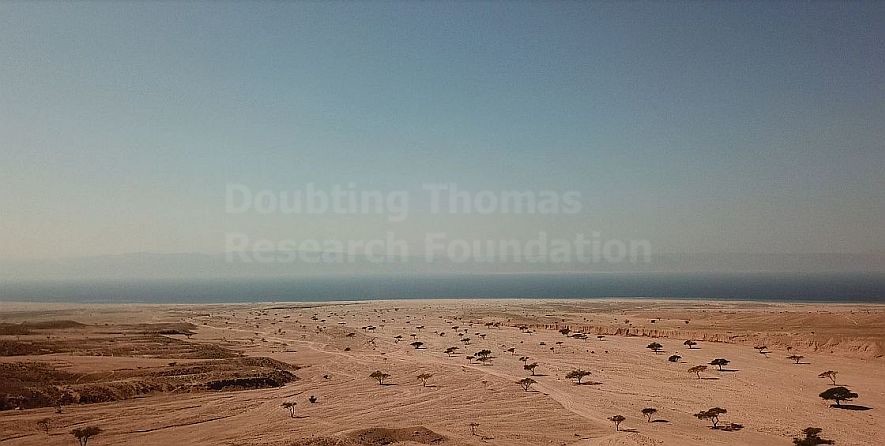What Was the Date of the Exodus?

Establishing a definitive date for the Exodus is a difficult challenge given the fact that several thousand years have passed since the events. However, the Scriptures and extra-Biblical resources offer some guidance on when it may have taken place, so we will use this information to guide our estimate.
There are a number of proposed dates for the Exodus, ranging from before 2000 B.C., to the more commonly accepted date of around 1290-1250 B.C. Many Biblical scholars place the Exodus in the 13th-century B.C.
One of the arguments in favor of a 13th-century date is the claim that the Hebrews built the city of Raamses. As Exodus 1:11 recounts,
So they appointed taskmasters over them to afflict them with hard labor. And they built for Pharaoh storage cities, Pithom and Raamses.
The conclusion frequently reached is that since this city of Raamses was built at Pharaoh's orders, it was a city named in honor of the current Pharaoh; one may then reasonably believe that the Pharaoh was Ramesses II.
However, a site named Rameses existed centuries before Ramesses II became Pharaoh. When Joseph was still living, his family settled in Egypt during the great famine. When his father Jacob and his brothers came to Egypt, Genesis 47:11 recounts that they settled in the land of Rameses.
So Joseph settled his father and his brothers and gave them a possession in the land of Egypt, in the best of the land, in the land of Rameses, as Pharaoh had ordered.
This land already had the name Rameses well before Ramesses II or his grandfather Ramesses I. What may have happened is that this part of Egypt was settled for some time, but Pharaoh Ramesses II built it up even more during his reign into a highly important center of power.
However, a storage city does not necessarily fit with the descriptions of the city that Ramesses II built. It is possible that he may have built upon an existing city, which may have been the store-city of Raamses.
Another potential issue for the later Exodus date is that it sets up a conflict with the timeline for the Era of the Judges. This era encompassed 15 judges over the course of about 350 years. If the Exodus took place in the 13th-century, this places the beginning of King Saul's reign the 11th-century B.C.
However, Saul and David's reigns amounted to 80 combined years, which would put King Solomon's reign into the 9th century B.C., decades after he died. The fairly certain start date for his reign is in the 10th-century, around 970 B.C., and his reign lasted 40 years.
A second popular date for the Exodus is 1446 B.C. It is our contention that this is the correct date. The 13th-century date isn't necessarily impossible, but with current knowledge of ancient Israelite history, we believe that the 1446 date better fits the criteria.

The Biblical Timeline
The Scripture offers a few guideposts for dating the Exodus. One of the clearest is in 1 Kings 6:1.
Now it came about in the four hundred and eightieth year after the sons of Israel came out of the land of Egypt, in the fourth year of Solomon’s reign over Israel, in the month of Ziv which is the second month, that he began to build the house of the Lord.
King Solomon's reign is thought by most scholars to have begun in the year 970 B.C. The fourth year of his reign would be 966 B.C. From 966 B.C., 480 years prior would be 1446 B.C.
Dr. Glen Fritz, author of The Lost Sea of the Exodus, also believes that the Exodus took place approximately in the year 1446 B.C. He also cites 1 Kings 6 as an important piece of evidence but emphasizes some key points about this particular passage.
Biblical scholar Umberto Cassuto found that the author recorded the time which had past in ascending order, rather than descending. Measurements made in this manner were designed to be highly precise, not estimated or figurative (Fritz, 18).
The author(s) of the Books of the Kings were not merely scribes, but were prophets, individuals who were held to the highest standards of truth. Falsity was an offense punishable by death, according to Deuteronomy 18:20. The fact that such precise measurements were used indicates to us that this was no lackadaisical record.
In the book of Acts, the Apostle Paul recounted the sequence of events from the Hebrew entrance into Egypt, all the way to the birth of Jesus in his attempt to prove Jesus' status as the Messiah.
Paul, who was a Pharisee and very knowledgeable in Jewish history, stated that from Jacob's move to Egypt to the time of the prophet Samuel, the total time elapsed was about 450 years. Acts 13:17-20 says:
The God of the people of Israel chose our ancestors; he made the people prosper during their stay in Egypt; with mighty power he led them out of that country; for about forty years he endured their conduct in the wilderness; and he overthrew seven nations in Canaan, giving their land to his people as their inheritance. All this took about 450 years. After this, God gave them judges until the time of Samuel the prophet.
The prophet Samuel lived in the 11th-century B.C. 450 years in time places the Exodus in the 15th-century B.C. Since Paul's timeframe is an estimate, there is some give and take, but a date of 1446 is within the range he gave.
Another guidepost is offered by Paul in the book of Galatians. There, he recounted the number of years from when God made his promise to Abraham to the giving of the Law at Mount Sinai. Galatians 3:16-17 says,
The promises were spoken to Abraham and to his seed. Scripture does not say “and to seeds,” meaning many people, but “and to your seed,” meaning one person, who is Christ. What I mean is this: The law, introduced 430 years later, does not set aside the covenant previously established by God and thus do away with the promise.
Paul's timeframe marks two distinct points in Jewish history: Abraham's sacrifice of Isaac, and the giving of the law at Mount Sinai after the Exodus.
Many Bible translations of Exodus 12:40-41state that the Hebrews were slaves in Egypt for 430 years. However, the authors of the Septuagint translation in 250 B.C. stated that they lived in Egypt and Canaan during this time, not just Egypt alone.
The New American Standard Bible translates Exodus 12:40-41 as:
Now the time that the sons of Israel lived in Egypt was four hundred and thirty years. And at the end of four hundred and thirty years, to the very day, all the hosts of the Lord went out from the land of Egypt.
The Septuagint, directly translated, reads:
And the sojourning of the children of Israel, while they sojourned in the land of Egypt and the land of Chanaan, four hundred and thirty years. And it came to pass after the four hundred and thirty years, all the forces of the Lord came forth out of the land of Egypt by night.
430 years from the Exodus (assuming the 1446 B.C. date) would place the sacrifice of Isaac in about 1876 B.C. Since Abraham was one hundred years old at the time Isaac was born, he would likely have been born in the late 20th century B.C.
We believe that the Septuagint scholars at Alexandria understood the time period mentioned to Abraham encompassed the era of the Patriarchs in Canaan, and the time of bondage in Egypt after the death of Joseph. This chronology places the Exodus approximately in the middle of the 15th century B.C., and linking this with the precise account of 1 Kings 6, specifically to 1446 B.C.
This date is not dogma for us, however, and when new information is presented to us regarding the date of this event, we will re-examine our position as we pursue the truth wherever it leads.
Last updated July 18, 2019

I do so appreciate that you will follow the evidence wherever it might lead and pray that God will bless your efforts to find His truth and make it known to everyone.
Hmm, interesting. I read an article that the Exodus may have happened during the reign of Pepi II, who lived in 2200 BCE. I know this date if 800 years off from 1446 BCE, but the Ipuwer papyrus was written around this time, and it exactly describes the plagues and it mentions that the slaves took Egyptian gold with them, just like in the story of Exodus. Here is a link to the article if you are interested: https://www.ou.org/holidays/passover/when_was_the_exodus/
I also think we should analyze how the late bronze age collapse is related to the Exodus story, but that was in 1200 BCE
There is a lot to discover and corroborate about this event in the world’s history, and I am greatly thankful that you are one of those leading the charge. Muslims, Christians, and Jews all need to work together to learn more!
You are a real-life indiana jones.
Thanks for the knowledge you provide!!
When did the Exodus occur? Good question, but hardly interesting to today’s skeptics. What might be more interesting is the date of God’s final Wrath. Got a clue to that one? Let’s write a book and make it conceivably true.
Watch this video https://youtu.be/FF0F8YjT1og and see how they work out the date. it makr good sense.
To know the details and date of Exodus, read Dr. I. Velikovsky/s “Ages in Chaos” and “Worlds in Collision”
The 1446BC date would match with the date of the destruction of Jericho around 1400BC, and with scarabs of Thurmose III found at Mount Ebal and Shechem. It also matches the inscription from the time of Ahmose II which records “The wanderers of YHWH” as enemies of Egypt. Finally Rameses built his city of stone. The earlier Avaris was built using mud bricks. A storeroom has been excavated which was partially constructed using bricks without straw. Avaris and nearby cities with large Semitic populations were abandoned around this time.
My own Biblical study of the year of the Exodus comes to 1680 BC due to 3 560-yr. periods mentioned in Matt. 1:17 (set of 3 14 generations–each generation being 40 years)from Abraham to David, David to captivity of Babylon, and from Babylon to Christ. And letting the Word interpret itself you can come up with flood of Noah at 2474 BC and with the same techniques the tower of Babel at 2373 BC, the flood event itself as one of two events of the past that prove out Man’s 7,000 yrs in the creation week for two events for the future, the man of sin(the Antichrist) and the Millenial Reign of Christ. God’s final Wrath and the beginning of the Tribulation (and our Blessed Hope, the Rapture) cannot be known until we see the Antichrist set up the false peace and safety as stated in 1 Thess. 5. That is what I been looking for for more than 40 years!! Praise be to God! What a day that will be indeed!
I love reading the Bible and learning God’s words. I am so blessed to have been able to travel to the Holy Land in Israel. You are doing my dream job. I know it is extremely dangerous, but this is what I would love to do. Explore the places mentioned in the Bible and share with others the history as we connect the pieces. This is very powerful.